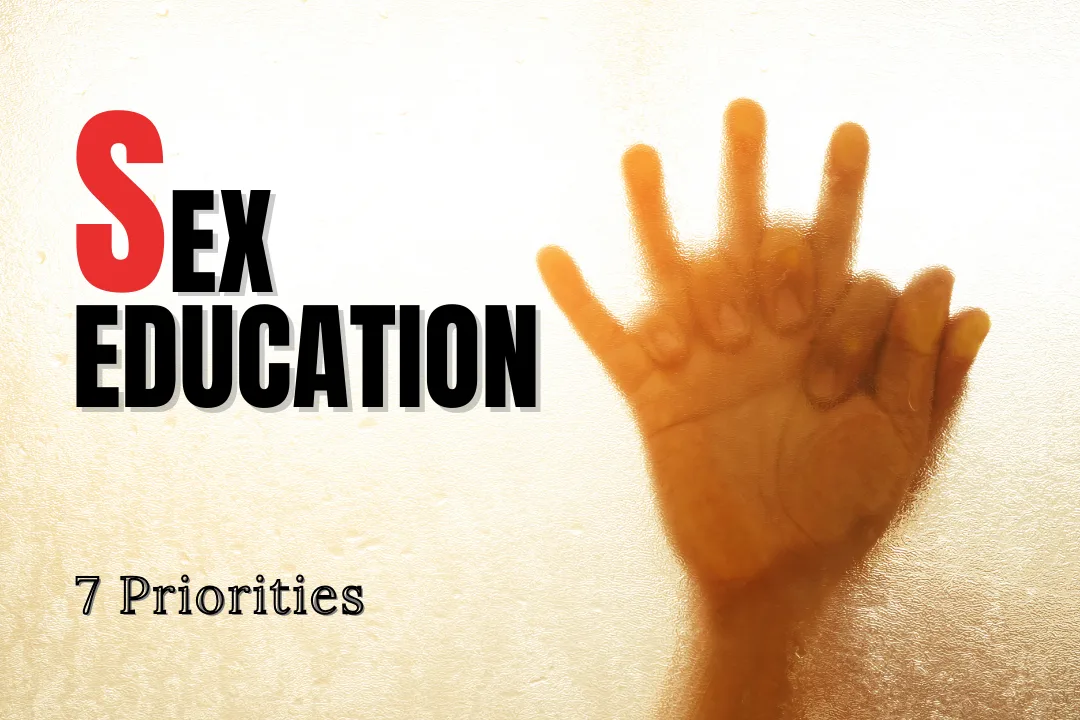INTRODUCTION
Sex Education is an important part of the educational processes that are aimed at helping a person obtain the set of information, skills, and resources which can help him or her in understanding the question related to human sexuality. The sphere of sex education does not end with sexuality and reproduction; it includes emotions, relationships as well. However, to date, it is still a topic that ignited people’s concern in many areas, and it is still resisted by different cultural and religions.
However, sex education is very important so that young people can handle themselves in the right manner in the handling of their matters including reproduction, sexual relationships, STIs, and emotional constraints like those mentioned here like early pregnancies. This article also explains why Sex education is important, expounds on the various advantages of it and why it must be included in the curriculum of every learner.
I. The Importance of Sex Education: Empowering the Next Generation
The information about the present topic is one of the most efficient methods to teach young people. When young people enter their Teens, they are in a process of emotional and physical development and are at times given very contradictory information about matters to do with Sexuality, relationships and reproductive health. So, meeting no proper sexual education, these young individuals may get the information from similar individuals, or through the Internet, which is replete with myths and misrepresentations.
Correct, thorough, and developmentally appropriate sex education prevents this, while more than 120 sex ed programs offer research-backed facts to teens. They also offer practical knowledge of the body and its changes, changes that occur during puberty and how best to maintain their sexual health. Due to explaining the topics like consent, contraception and sexual orientation, sex education increases students’ sense of responsibility and self-respect.
Second, sex education contribute to the reduction of factors which hitherto stigmatize aspects like menstruation, sexual abuse and sexual orientation. In doing this, sex education ensures that an environment is created to ensure that the youths ask as many questions as possible, seek assistance, and make decisions in line with their-values, beliefs and most importantly their welfare.
II. The Impact of Sex Education on Public Health
Probably the most persuasive argument that can be made for the adoption of sex education is its cause and effect nature with the health of the population. Education campaigns play a big role in the fight of the STI STI’s, ranging from HIV/AIDS, gonorrhea, chlamydia and syphilis. Various researches have shown that those areas that apply a number of programs on sex education usually record lesser incidences of STIs and teenage pregnancies than the areas that rarely encourage such kind of education.
It transfers knowledge of safe sexual practices, condom, and the need to for regular health check-ups making sexual practices a way of keeping away dangers. Also, students are taught on the possibility of regular STI check up, which can also reduce on the spread of the diseases.
First of all, sex education helps people minimize the discrimination and prejudice against sexual health problems. Some patients are too shy or too shy to talk about the problems related to sexual health or use doctor services, but education makes this plunge seem natural. This normalization can force more people to go seek help for an illness without feeling that they will be judged, thus improving health on the overall.
III. Addressing Myths and Misconceptions: The Need for Accurate Information
Sex and sexuality are arguably some of the most misunderstood areas, and with no formal guidance on matters concerning sex, youths only twist available information from sundry sources. A backlash of the false information may be dangerous as it leads to negative behaviors such as unsafe sex practices, childhood and adolescence confusion over sexual orientation or gender identity.
Such education ensures that students gain accurate knowledge about issues including; body systems and functions, consent in sexual matters, use of contraceptives and sexual rights. It assists in the elimination of the myth that some contraceptive are dangerous or that sex is only a bodily function. Besides, it educates students in what emotions, psychological processes, relationships, and every sexual experience involve as healthy sex implies understanding, communication, and consent.
Elimination of myth and misconception eradicates chances of youthful persons practicing risky behaviors or make wrong decisions due to what they have been taught. Students are also able to easily identify cases of things which are not really healthy such as relationships where consent was not sought.
IV. Fostering Healthy Relationships and Communication
Education about sexual matters is not only about the anatomy of sexuality, but also inculcates good relationship behaviours. Young people can experience particular difficulties in relationships and personal partnerships, and this may be the reason why effective communication skills are so important in order to maintain, at least, non-violent relationships.
It is apparent that the knowledge of how to communicate properly, and the key principles of consent, and how to respect each other with passion and affection, are the elements of the sexual education. Educating a student about Sexual Relations is about training the person to have proper feeling and to know how to set limits for feeling and how to identify whether the relationship they are in or want to be in is abusive or not.
In addition, sex education also enables students to learn the various types of relationship; be it romantic, friendly, or familial and more so; learn what qualities for a partner they would like, and how they would expect the partners to respect their decision and boundaries. These greater relational skills enhance relationships and guarantee that people know ways of handling problems with other people without violence.
V. Sex Education and Gender Equality
Hence, sex education is very vital when it comes to fighting for gender equity, and eradicating culturally assigned gender roles as well as other cultural influences surrounding population’s sexuality. These tightly inherited gender roles and expectations put barriers upon people’s perceptions of their sexual selves causing confusion or repression. For instance, some cultures put pressure to various people based on their genders, for example, women should stay subservient or men should not show their weakness.
When students are being taught sexually, they are being taught that gender and sexual orientation are not a one-sided deal. From it they learn that everyone has the freedom to choose who and what they are as well as the liberty to be protected from personal space invasion based on sex. This tends to eradicate existing prejudices and/or discriminations against gay, lesbian, or bisexual students, as well as those who are ableist or otherwise discriminating against non-binary students.
Furthermore, information that is delivered under the sex education can include concerns like sexual harassment, and wife battering. It also enables students to understand the impacts of abusive behaviour, and the authorities’ positions on the issue, and learn ways of describing and protecting one’s own rights and actions when they witness other students behaving abusively, or when they experience abuse themselves.
VI. Parental Involvement and Support: A Holistic Approach
And though schools are obligatory in providing sex education, it does not exclude parents and other caregivers. Observers have noted that parents play a crucial role in reminding children about material learnt in school and further Hollis. Hence, the children, who have efficient parents to ask questions on matters relating to sex, relationship and/or consent feel safe/ supported to talk about it.
Parents can also get involved in a way that guarantees that the messages been passed during the sex education are culturally reasonable and in line with the family’s standards. Teachers can involve parents in classrooms by practicing workshops, informative meetings, and discussion with parents, so that the subjects taught and the educational process in general encompasses the broadest vision possible. Teacher–parent cooperation guarantees that sex education is comprehensive and corresponds to the individual needs of the learners.
VII. Sex Education as a Tool for Reducing Teenage Pregnancy
This is a social health and economic problem in teenage girls that results in negative repercussions for both the young parents and their Offspring/s. Teenage pregnancy has been noticed to be was reduced through the provision of young people with information on contraception methods, and the likely consequences of early sexual activities based on their emotional preparedness.
Knowledge about possible adverse effects of unprotected intercourse, and advantages of contraceptives assistance students to make correct decisions about their sexual practices. Sexteraction is found to be an effective approach in increasing the age at which students start having sex, and ensure that those who indulge in sex, practice contraception and their choices of practice are in consonant with values and other personal goal.
Also, sex education will assist in eliminating stigma of teen pregnancy among teenagers. As for young parents, unlike many other programmes, which limit their opportunities publicly ridiculing them, demoting their status and excluding them from the society, CES helps people to suggest them effective resources which they can turn to in case they need help, know that they have rights, and make decisions which are proper for them.
CONCLUSION
It is efficiently instrumental to improving people’s sexual behavior, and emotional health as well as providing them with knowledge on how to handle themselves. The argument therefore is that extend of its positive impact for young people is not only in preventing STIs and teenage pregnancies but also in enabling the young people to understand relationship, gender equality and personal space. It is important that the myths are overcome, that healthy relationship is encouraged, and that worthless stereotype is removed and sex education remains an essential part of creating a better, more informed generation.
On the one hand, there are complains from some people, but, in any case, it is possible to realize that sexual education is an integral part of modern education process. It is imperative for schools, communities, together with parents to ensure all children are provided correct, appropriate and comprehensive sex education. However, desensitizing sex education remains the only way to prepare the future generations to make sufficient sexual and emotional health decisions.
So, this is all for now, we’d love to hear from you. Feel free to share your experiences or questions in the comments below! and don’t forget to share them with friends and others who might benefit! Save Consumerviews in your bookmark for easy access, and follow our Facebook Page Consumerviews India for more articles like this.
Also Read,
10 Proven Ways How to Build Emotional Intimacy in Your Relationship
















0 Comments